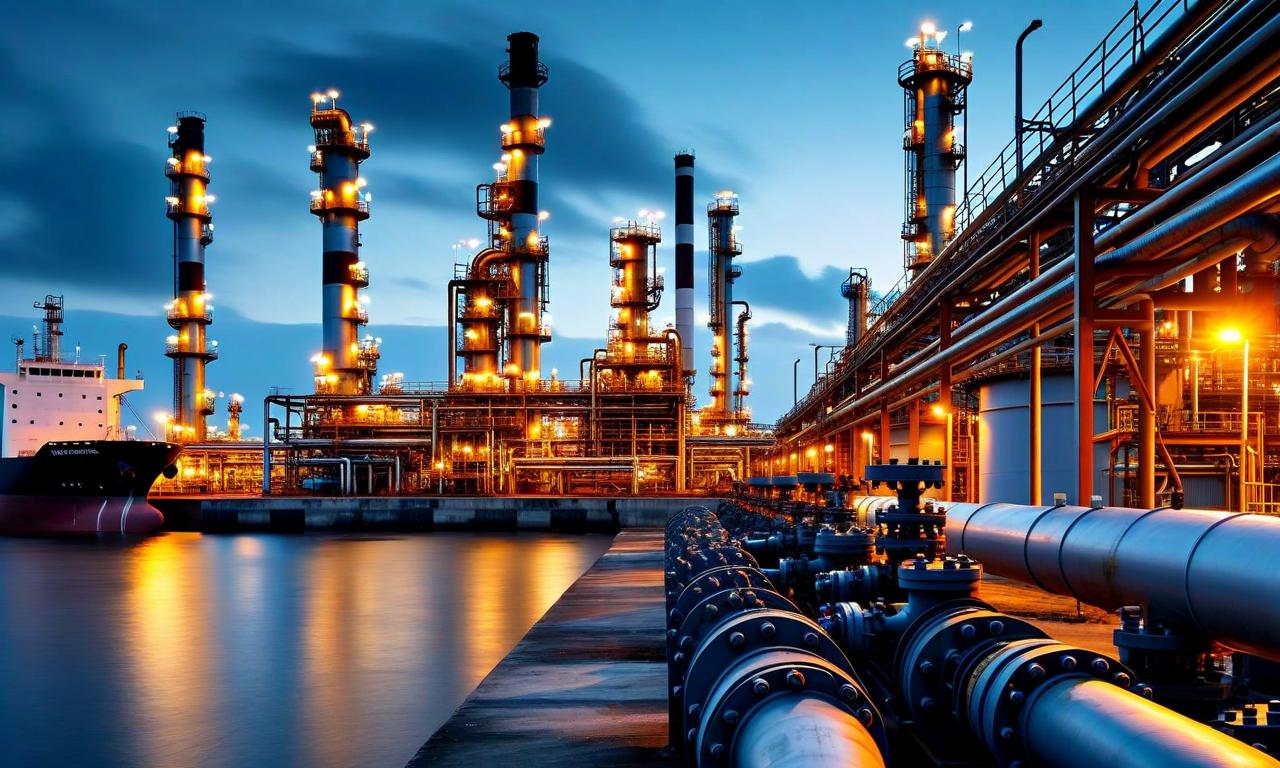Oil Prices Rise 1.3% Above $64 Per Barrel on Supply Drop Amid Global Market Shifts
Oil prices increased by 1.3%, closing above $64 per barrel, due to a larger-than-expected decrease in U.S. crude and fuel supplies. This rise occurred despite U.S. imposing additional 25% tariffs on Indian exports, bringing the total to 50%, in response to India's continued Russian oil purchases. The International Energy Agency warned about potential OPEC+ supply increases that could lead to a record surplus next year. Indian state-owned refiners have resumed buying Russian crude despite initial reductions following the tariff announcements. Russia has increased its crude oil export plan from western ports by 200,000 barrels per day for August, following Ukrainian drone attacks on Russian refineries.

*this image is generated using AI for illustrative purposes only.
Oil prices increased 1.3% to close over $64.00 per barrel following a larger-than-expected drop in U.S. crude and fuel supplies, which helped ease supply glut concerns. The price rise occurred despite U.S. tariffs on Indian products and warnings from the International Energy Agency about potential OPEC+ supply increases that could create a record surplus next year.
US Tariffs on Indian Exports
The United States has imposed additional 25% tariffs on Indian exports, bringing the total tariffs to 50%. This move comes in response to India's continued purchases of Russian oil, which have increased following Russia's invasion of Ukraine. However, analysts are questioning the effectiveness of these higher US tariffs on Indian purchases.
Oil Price Movements
While the latest data shows a significant increase, earlier in the week, Brent crude saw a minimal increase of $0.02, reaching $67.24 per barrel, while West Texas Intermediate (WTI) remained unchanged at $63.25. Both contracts had experienced a decline of over 2% on Tuesday.
Indian Refiners' Response
Initially, Indian refiners reduced their Russian crude purchases following the tariff announcements. However, state-owned refiners Indian Oil and Bharat Petroleum have since resumed buying Russian supplies for September and October. Indian Oil has stated that it will continue purchasing Russian crude based on economic considerations.
Russian Export Dynamics
Recent Ukrainian drone attacks on Russian refineries have led to reduced operations, forcing Russia to export crude oil that it cannot process domestically. In response, Russia has increased its crude oil export plan from western ports by 200,000 barrels per day for August.
The oil market continues to closely monitor these developments, as geopolitical tensions and shifting trade patterns impact global supply and demand dynamics. The recent price increase, driven by the drop in U.S. supplies, demonstrates the complex interplay of factors affecting the global oil market.



























